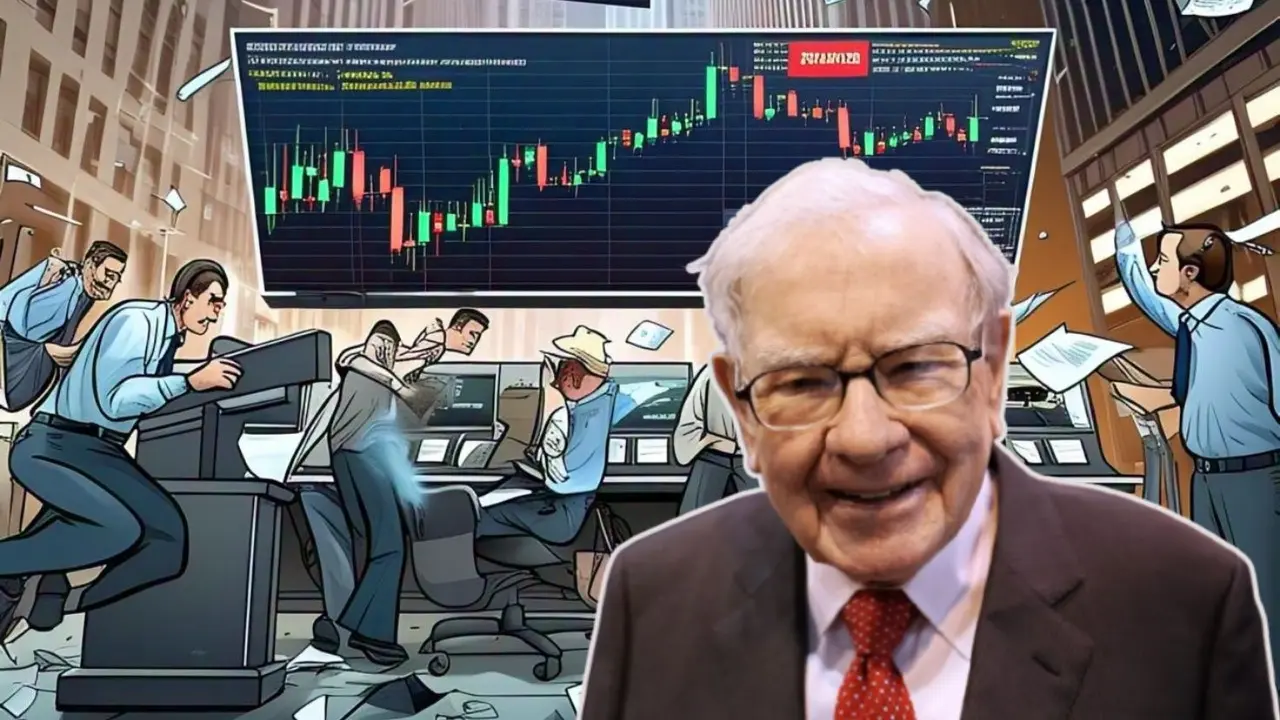Updated 3 May 2025 at 16:00 IST
Inside Warren Buffett’s 60th AGM: Tariff Shocks, Record Cash, and What’s Next for Berkshire Hathaway
Warren Buffett's 60th AGM discusses tariff shocks, record cash, and the future of Berkshire Hathaway, with insights on the economy, investments, and leadership.
- Republic Business
- 3 min read

Thousands of investors are descending on Omaha, Nebraska, this weekend for what is being called the most consequential Berkshire Hathaway annual meeting in years. Now in its 60th edition, the event—often dubbed the "Woodstock for Capitalists"—comes as the U.S. economy stumbles under the weight of renewed tariff uncertainty under President Donald Trump, and markets crave guidance from Warren Buffett, the 94-year-old Oracle of Omaha.
Berkshire Outperforms Amid Market Turmoil
Even as the broader market reels, Berkshire Hathaway has remained resilient, with shares up 18.9% in 2025, sharply outperforming the S&P 500, which is down 3.3%. This divergence has only heightened investor interest in the meeting. Many see Berkshire as a bellwether for the broader economy, given its expansive portfolio—from BNSF Railway and Geico to real estate, utilities, and Fruit of the Loom.
“The far-reaching nature of their businesses makes Berkshire a microcosm of the American economy,” said CFRA analyst Cathy Seifert. “Investors are eager for Buffett’s take on how tariffs could disrupt demand or slow down economic momentum.”
Tariff Pressures and a Shrinking Economy
The concern is real: the U.S. economy shrank for the first time in three years in the first quarter of 2025, as businesses scrambled to import goods ahead of expected tariff hikes. Buffett has largely avoided commenting publicly on tariffs—but that may change this weekend, as mounting pressure from investors and analysts forces the issue into the spotlight.
Advertisement
“Buffett has kept quiet on tariffs, but people want to know what he’s thinking,” said Robin Nasser, a shareholder from Newport Beach. “He’s clearly preparing for something—why else would he be stockpiling cash?”
Cash Pile Soars, But No Major Deployments
Indeed, Berkshire’s cash holdings surged to a record $334.2 billion by the end of 2024. For nine straight quarters, the conglomerate has sold more stocks than it has bought, raising questions about whether Buffett is bracing for a downturn—or waiting for bigger opportunities.
Advertisement
Saturday’s meeting will begin with the release of Berkshire’s Q1 earnings, which will reveal more about recent trading activity and capital deployment.
Eyes on the Post-Buffett Future
The event will also offer a glimpse into the post-Buffett era. Vice Chairman Greg Abel, Buffett’s designated successor as CEO, is taking on more capital allocation duties, according to lead director Susan Decker. Vice Chairman Ajit Jain will also be present for the marathon Q&A session that follows the earnings release.
Less clear is the future role of investment managers Todd Combs and Ted Weschler, whose responsibilities and succession roles remain under speculation.
Japan Bets and ESG Battles
Berkshire has also been active internationally. In March, the company raised its stakes in five major Japanese trading houses—Itochu, Marubeni, Mitsubishi, Mitsui, and Sumitomo—to as much as 9.8%, a move seen as a vote of confidence in Japan’s industrial recovery.
Meanwhile, shareholders will vote on seven proposals related to diversity, climate policy, and artificial intelligence. As in previous years, Buffett and the board oppose all seven resolutions, a position that may invite more scrutiny in today’s ESG-conscious investment climate.
A Meeting with Macro Significance
More than just a company update, this year’s gathering is a litmus test for investor sentiment in uncertain times. Between the looming economic slowdown, Trump’s trade brinkmanship, and generational leadership transition, Buffett’s words could ripple far beyond Omaha.
As thousands tune in to hear Buffett’s insights—on markets, life, and what comes next—the big question remains: What will the Oracle of Omaha do next with his record cash pile, and how will he steer Berkshire through America’s new economic storm?
Read This Also: Warren Buffett Dismisses Gold as an Investment: Why Rising Gold Prices Fail to Impress Him?
Published By : Rajat Mishra
Published On: 3 May 2025 at 16:00 IST
